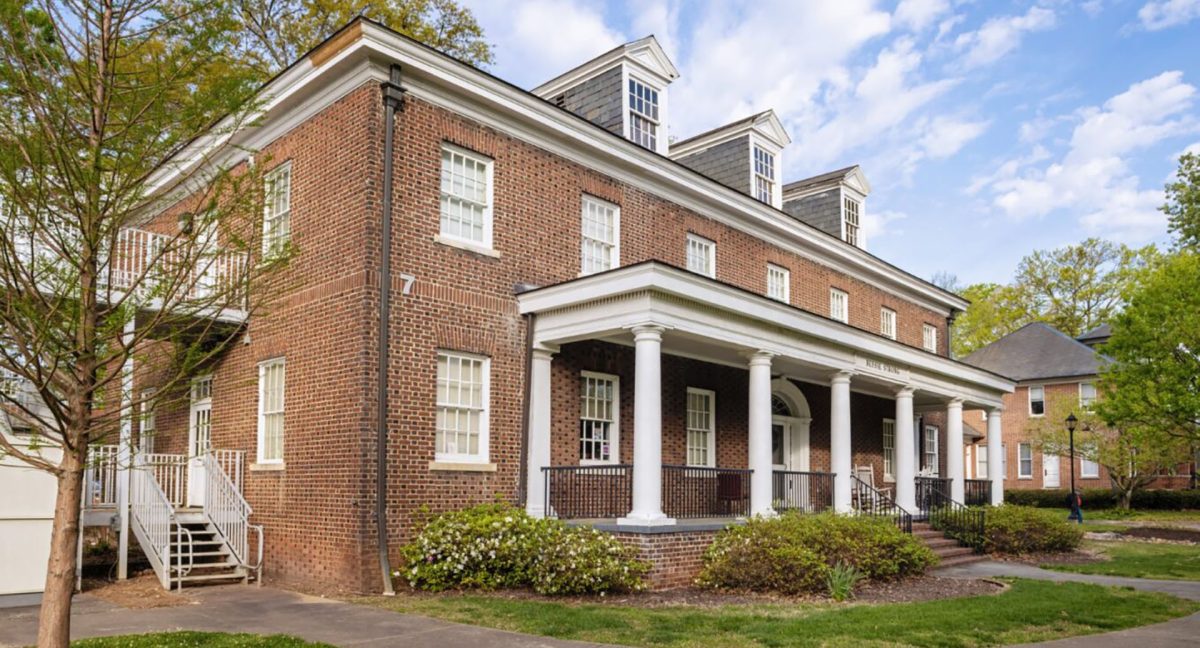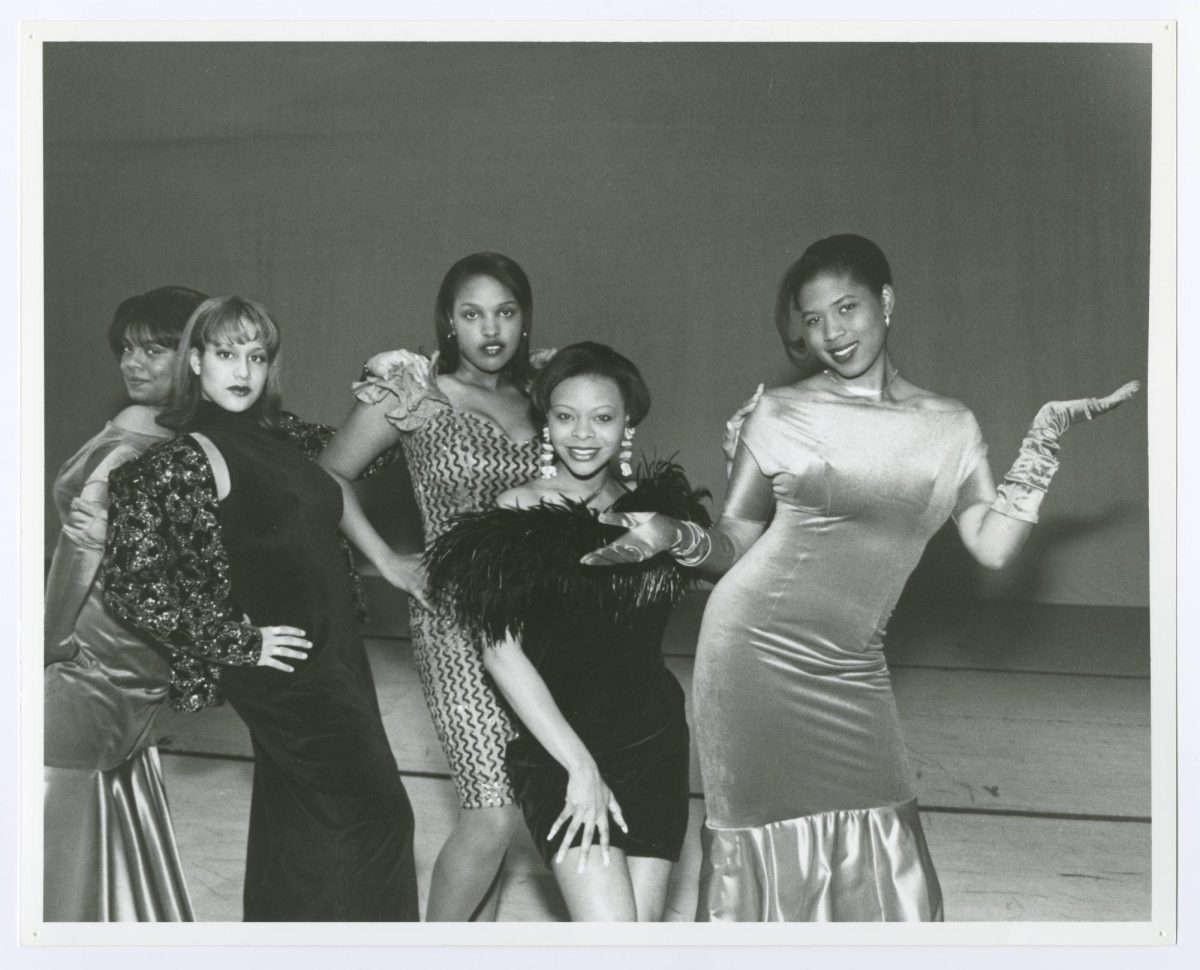On September 18th, it was announced by Dark Nation Tours™ that rapper and Love And Hip Hop: Miami star Sukihana would be headlining the 2023 Morris Brown College Homecoming concert as a part of her The Good Cat US tour. In a now-deleted Instagram post made by The AUC Central (@theauccentrallc) – a page with over 40,000 followers that posts AUC-related news and activities – it was added that rapper Sexyy Red would perform alongside Sukihana as one of her promoted special guests.
Both Sukihana & Sexyy Red are widely considered to be controversial figures among rap consumers due to their provocative lyrics and personas. Sukihana has achieved viral success on TikTok for quite a while now due to a snippet of her song, “Eating,” in which she raps, “he just ate my a**, he wanna switch/now I’m eatin’ his a**/eatin’ his a**, eatin’ a n*gga a**.” Beyond her musical content, Suki has garnered significant attention across social media platforms for antics, such as appearing on all fours at the 2023 VMAs red carpet and posting explicit clips from her OnlyFans account.
Similarly, Sexyy Red’s breakout hit is a song called “Poundtown,” in which she famously proclaims, “my coochie pink, my bootyhole brown,” in addition to several other explicit lyrics in which she expresses her sexual desires and abilities.
With this said, I have heard mixed reactions from AUC students as to their thoughts on these two artists and what their fame means for the perception of Black women. An overwhelming amount of students shared with me that they are troubled by the imagery that Sexyy Red and Sukihana promote.
“…I love Black women, but I think Sexyy Red especially is [a] bad representation of Black women,” says Troy Boxton Jr., a sophomore Computer Science Major at Morehouse College. When asked if he feels like rappers like Sukihana and Sexyy Red promote negative stereotypes of Black women, he stated, “Not negative stereotypes because white women do the same. Women in general.”
Nia Burton, a senior Psychology Major at Spelman College, says, “I don’t have a firm stance, but I do think [they] perpetuate somewhat of a distasteful image for Black women depending on how [you] look at it,” she says. “…in the grand scheme of things for Black people, one black person can represent the whole race. It’s how I feel, it’s just how it is. From the outside looking in.”
On Twitter, AUC Alum and other adults have expressed similar distaste towards the announcement of Sukihana and Sexyy Red as Homecoming headliners. In a now-deleted tweet, user @only1showers posted a screenshot of the concert announcement with the caption, “All of this is weird smh…Just make it make sense,” In the replies, another user remarks, “I am thoroughly concerned for the future of our culture.” Someone else replies, “…they feel like the male agenda is complete. Now they want the women to become a generation of harlots!”
In a completely separate post, two users go back and forth, saying, “The smell,” “Boonk, Hennessy, and stale cooter.”
I’m troubled by these responses from the AUC community for several reasons. Firstly, the notion that Sukihana & Sexyy Red’s popularity is somehow setting a bad example for Black women is a statement straight out of the respectability politics playbook. For those unfamiliar, respectability politics is the idea that if minorities present themselves in a manner that is considered “respectable” to the dominant society, we can achieve more progress in our demands for equality. This ideology has been proven untrue time and time again. Its falsity is evident in examples of police brutality and other instances of racial profiling in which victims were harmed despite the fact that they exemplified characteristics that members of the dominant society would consider to be desirable.
The truth is that if someone wants to be discriminatory towards you, they don’t need a Sexyy Red or a Sukihana to justify it – they’ll simply just be discriminatory to you, regardless of how you act. Someone who uses two people to justify their hatred of an entire community says more about them than it does about the people they are citing as representation.
And frankly, why exactly should Black people care for the approval of white people anyway? What have white people done to show that they are a shining example of what a good and respectable person should be? Was it colonizing entire countries of people? Facilitating the trans-Atlantic slave trade? What about modern atrocities, like police brutality and racially motivated gun violence?
And are we to act as if the white community doesn’t have their own Sukihana’s or Sexyy Reds? What about famous trainwrecks like Miley Cyrus in her Wrecking Ball era, or viral sensation Bhad Bhabie? We seldom see people using these individuals as reasons to condemn the entire white community.
What the respectability crowd fails to understand is that all of the things we think to be “respectable,” “professional,” and “classy” are themselves illegitimate because they represent a history of white supremacist ideologies being forced onto Black communities. Since the beginning of history, the motivation behind abhorrent acts like slavery and colonization was the idea of uniformity. Consequently, Black people across the diaspora have lost many of our indigenous historical practices – some of which align with and celebrate the sexual freedom of people like Sukihana & Sexyy Red – because it was thought that any cultural practices that weren’t comprehensible through the European lens were irredeemable. White supremacy asks us to take every part of ourselves that makes us unique in favor of conformity. It asks for straight hair, an easy-to-pronounce name, clothes that don’t show too much skin, and accents without any twang. I want people to realize that when they are promoting this idea of “classiness,” this is where your views are coming from. This is the ideology you are siding with.
The discourse surrounding Sukihana & Sexyy Red also highlights the hypocrisy among those who participate in it. This is evidenced by the various AUC alum who expressed disgust at the announcement of Sukihana & Sexyy Red as performers, yet grew up in the era of rappers such as Lil Kim, Foxy Brown, & Trina, who are equally sexually expressive, if not occasionally more sexually expressive, than the former two women. And if you aren’t a fan of these female rappers, what about male rappers, who continue to freely rap about their sexual prowess and needs without critique? Why can men talk all they want about wanting sex a certain way, but when women express the same, it’s suddenly an issue? Are rappers like Drake, 21 Savage, & Lil Wayne ever considered to be bad examples of Black men?
Additionally, the emphasis on Sexyy Red and Sukihana as vanguards of promiscuity in music feels misplaced when R&B artists like Jhene Aiko are able to get away with similarly risque lyrics without even a quarter of the same vitriol. I have a strong inclination to blame this on colorism. Because Jhene Aiko has a light complexion, she is perceived as less threatening and “softer.” On the other hand, Sexyy Red & Sukihana, whose blackness is unambiguous, are subjected to stereotypes of looking “dirty” and being uncouth.
Similarly, I think classism plays a factor in the perception of both Sexyy Red and Sukihana. Because they loudly and proudly represent hood aesthetics, to people who don’t identify with this upbringing, it becomes easy to regurgitate common stereotypes associated with Black women from the ghetto.
I find Sukihana and Sexyy Red’s music to be empowering because, to me, it represents my ability as a woman to be assertive and demand the treatment I know I deserve. Luckily, I am not the only student in the AUC who recognizes the ludicrousy in the criticism of both artists.
“[They are] empowering, at least for those who grew up around [the] hood and ghetto… And it works because they are authentic to themselves and not copying or trying to replicate the culture. I can’t wait to see what they do next and how they can continue to demystify stereotypes by being themselves.” says Gabrielle Burnett (she/her), a sophomore Art Major at Spelman College.
“In response to the individuals who are upset by Sukihana and Sexyy Redd’s upcoming performance at homecoming, I ask you this: where was this fury when 21 Savage headlined and a slew of mostly black male rappers performed at SpelHouses’ homecoming last year?” asks Ashley Jones (she/they), a sophomore Psychology Major at Spelman College. “What is it specifically that bothers you about Sexxy Redd and Sukihana? I understand everyone does not have the same taste in music, but how exactly are these two artists in particular a disgrace to your HBCU’s legacy? “
Josephine Chivore (she/her) a sophomore Chemistry major at Spelman College, says, “I don’t necessarily believe that either Sukihana or Sexyy Red should be seen as the poster children for empowering and/or bad representations of Black women. I believe that these women have created spaces for themselves to express their respective sexualities as they see fit, but I think it’s unfair to all Black women, Sukihana and Sexyy Red included, to try and generalize how Black women are or how they should be perceived.”
All in all, you don’t have to feel empowered by Sexyy Red or Sukihana’s music, or even like their music. It’s not everyone’s cup of tea; I get that. But what you won’t do – at least, without critique – is regurgitate white supremacist talking points to criticize them. Sukihana, Sexyy Red, and rappers like them did not ask to be representatives of a community that is comprised of millions of people, all of whom are completely different. Black women are not a monolith. We all represent ourselves, and no one more. SpelHouse already has a reputation for classism. We shouldn’t contribute to it by harboring such problematic opinions.
![NLE Choppa Feat. @SexyyRed - S*ut Me Out Remix
Pictured are rappers Sexyy Red [left] and Sukihana [right]](https://spelmanblueprint.com/wp-content/uploads/2023/10/Fsz13HoX0AA_ulM.jpg)





